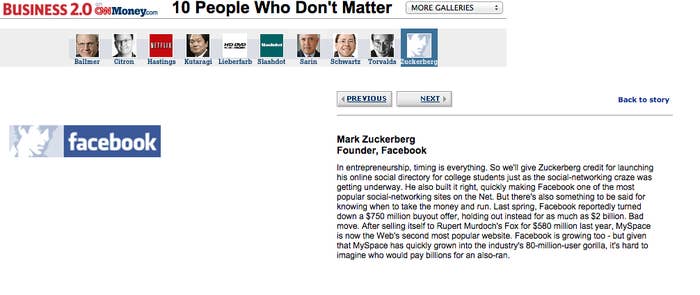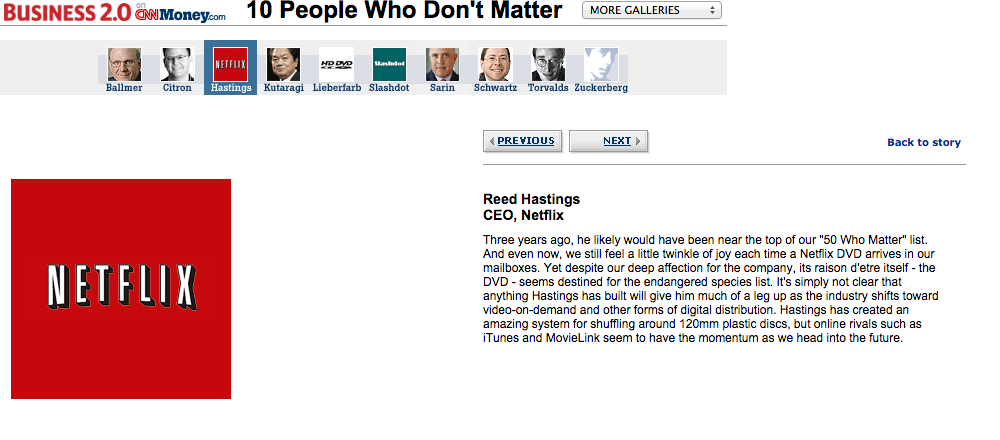
One of the perils of writing on the internet is that it has a long and easily accessible memory. This is especially true with tech writing, where the take is currency and most often includes at least a little bit of future casting. Write about any subject long enough and you're bound to have at least a few botched prognostications and ideas that fail to stand the test of time. Some, however, age worse than others, which brings us to this cautionary tale in predictive snark.
On June 22, 2006, CNN Money's Business 2.0 Magazine (2.0! A+ 'NET SPEAK) published a crude version of the soon-to-be-ubiquitous internet slideshow to serve as a companion piece to the magazine's "The 50 Who Matter Now" feature. The slideshow, "10 People Who Don't Matter," is a guide to, as the article's intro bluntly states, "the people you can safely snub at conferences."
The slideshow is, as far as major news network online magazines go, rather breathtaking in its blunt negativity (THESE PEOPLE DON'T MATTER). "As respected as they might be for their past achievements," the post reads, "their best days are behind them."
Tone aside, the best part is the list itself. Though written in "no particular order," the list takes a swing at Facebook CEO Mark Zuckerberg, calling his site "an also-ran" in comparison to the then-juggernaut of MySpace. Here's the post in full (emphasis ours):
In entrepreneurship, timing is everything. So we'll give Zuckerberg credit for launching his online social directory for college students just as the social-networking craze was getting underway. He also built it right, quickly making Facebook one of the most popular social-networking sites on the Net. But there's also something to be said for knowing when to take the money and run. Last spring, Facebook reportedly turned down a $750 million buyout offer, holding out instead for as much as $2 billion. Bad move. After selling itself to Rupert Murdoch's Fox for $580 million last year, MySpace is now the Web's second most popular website. Facebook is growing too — but given that MySpace has quickly grown into the industry's 80-million-user gorilla, it's hard to imagine who would pay billions for an also-ran.
On Sept. 9, 2014, Facebook's worth exceeded $200 billion for the first time, making it one of the most valuable companies in existence. Mark Zuckerberg is the 13th richest person in the world, according to Bloomberg.

Also on the list: Netflix CEO Reed Hastings. To be fair, the post rightly notes that DVD delivery feels like a dead-end business. And who'd have predicted its streaming dominance? But still:
Yet despite our deep affection for the company, its raison d'être itself — the DVD — seems destined for the endangered species list. It's simply not clear that anything Hastings has built will give him much of a leg up as the industry shifts toward video-on-demand and other forms of digital distribution.
Dang.
